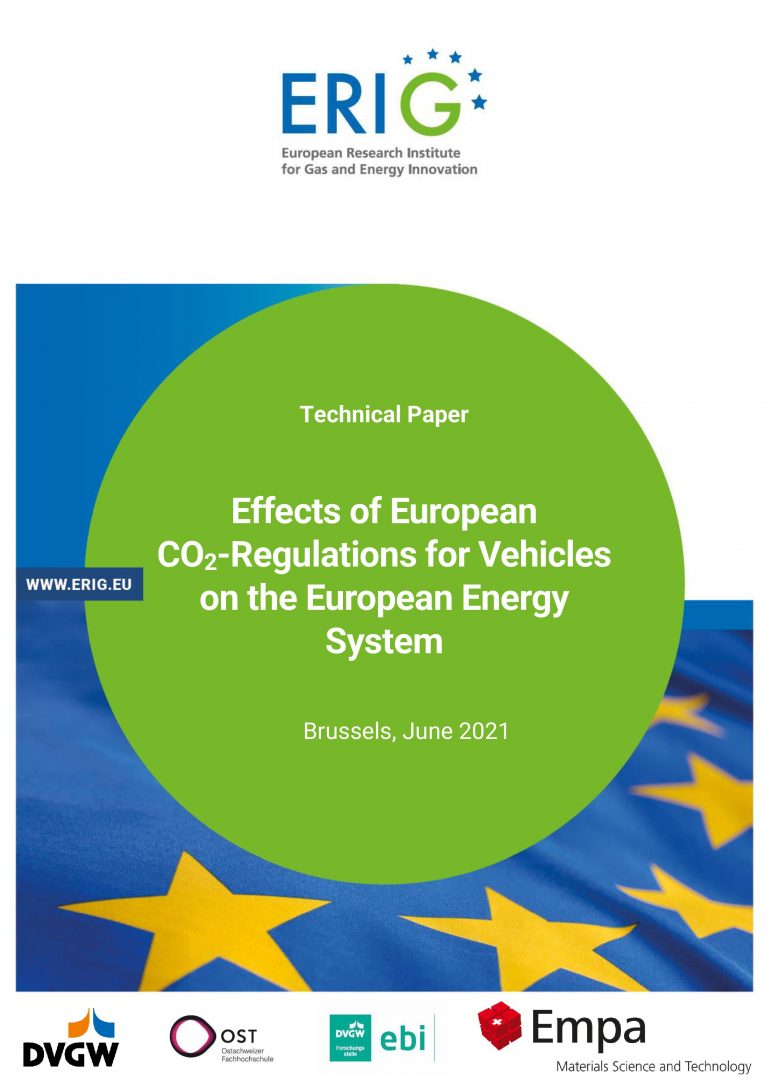ERIG presents technical paper:
Effects of European CO2-Regulations for Vehicles on the European Energy System
Brussels, June 1st 2021 – The European Research Institute for Gas and Energy Innovation (ERIG) has published their technical paper “Effects of European CO2-Regulations for Vehicles on the European Energy System”.
The current EU ambition to reduce greenhouse gas emissions have recently been sharpened in the EU Green Deal. This also includes emissions from road transport, specified in the “Sustainable and Smart Mobility Strategy” of the EU. The ambitions stand in stark contrast to the current emissions development we are seeing in the road transport sector.
“In order to achieve effective reductions in emissions in the mobility and transport sector and to meet the ambitious climate targets, well-balanced approaches are of utmost importance. For this, guiding documents and directives are needed that follow coherent and consistent system approaches and do not disadvantage any of the technologies that are available and can already be used today to effectively reduce emissions, and that enable a rapid and system-relevant improvement of today’s situation. This article aims to contribute to this purpose.” states Prof. Elimar Frank, OST Eastern Switzerland University of Applied Sciences, Rapperswil (CH).
In the article, the current regulatory framework for greenhouse gas emissions reduction of cars and fuels, based on Tank-to-wheel and Well-to-tank approaches addressing different stakeholder groups is mirrored against the scientific full life cycle assessment and the Well-to-wheel approach.
In an extensive analysis of the combined emissions from Well-to-tank and Tank-to-wheel for different energy carriers and vehicle technologies, it is showed that the individual values can be drastically misleading in regard the total actual emissions in the Well-to-wheel perspective. In consequence, not only are the real total emissions values of different energy carrier-vehicle technology combinations misrepresented, but it also sets incentives for certain renewable energy carriers and vehicle technologies over others.
The paper shows that this is to unjustified and stands in contrast to the important role gas will have for the future net-zero energy system in total. In the final part, suggestions are made how current regulation flaws could be mended leading to a regulation and incentives that are closer to representing the real total emissions.
Please find the technical paper here: Effects of European CO2-Regulations for Vehicles on the European Energy System


